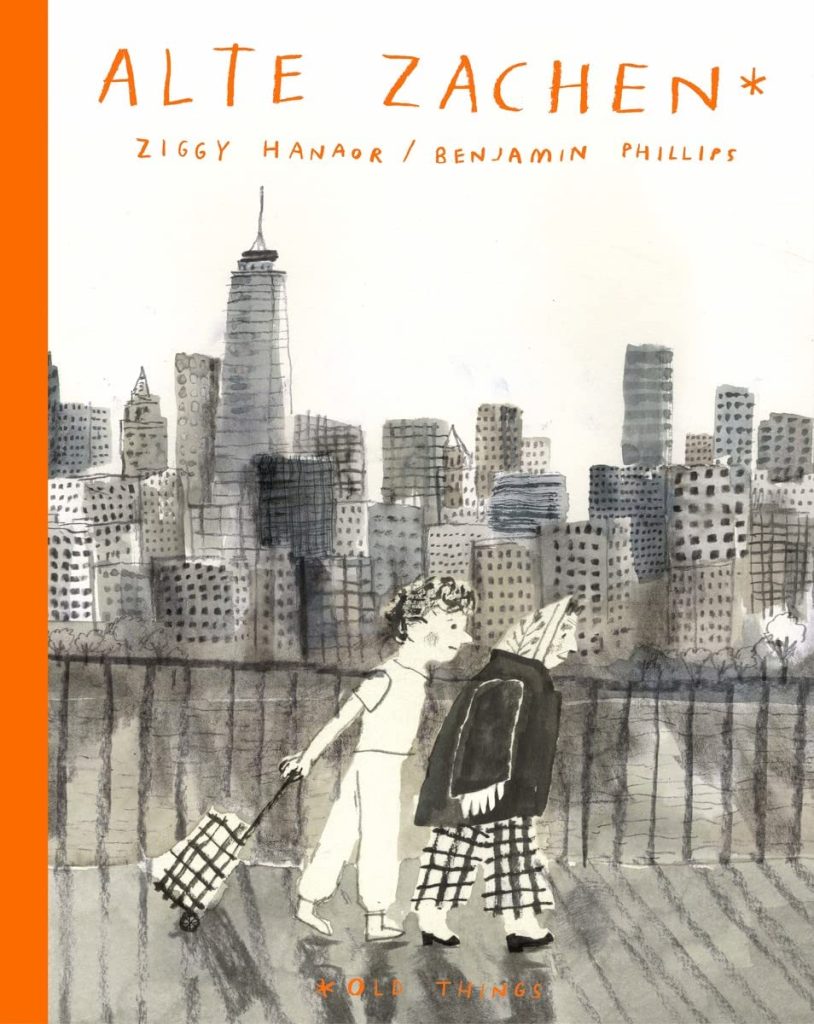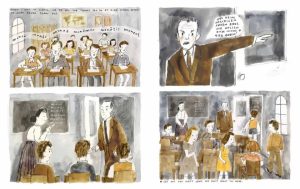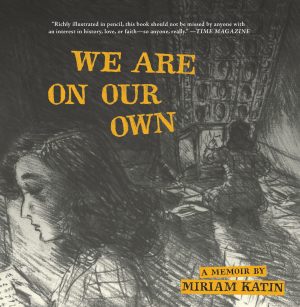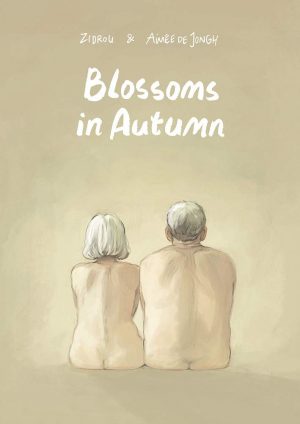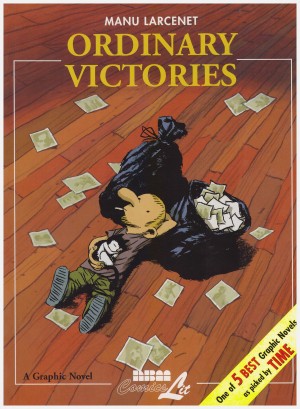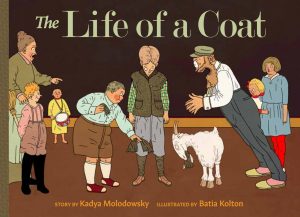Review by Ian Keogh
So much about Alte Zachen seems contrary, and while this certainly reflects the character around whom the graphic novel is constructed, it flies in the face of marketing sense. While acknowledging it reflects the origins of Rosa, why would anyone have a German title for an English language book? There’s minor recognition in the form of an asterisk and an English translation in small font and the English version accompanies the German on the spine, but how many people would at a glance mistake the cover for a German book?
Then there’s the resolutely ordinary cover. It’s representative of the flat impressionistic art from Benjamin Phillips within, and it reflects the content of a teenage boy accompanying his elderly Jewish grandmother as she goes shopping, but the dull cover hardly marks Alte Zachen as a book worth reading, which it is. It’s a sorrowful, sympathetic look at someone unaware time has moved on, and both haunted by the terrors of her childhood and looking back to happier times with melancholy.
It’s not explicitly stated, but Ziggy Hanaor having Rosa note she occasionally becomes confused is an indication of dementia starting. As she visits locations known in her early twenties, she’s surprised shops are no longer there, at prices, and the way women behind the counter dress, while feeling entitled to comment on them all. Although she escaped Germany before the worst of Nazism, Rosa still finds the sight of tattoos unsettling, and readers will find some of her comments on other matters unsettling as Hanaor establishes a woman no longer attuned to the times.
Phillips turns in art reflecting the mood in an individual style that’s slightly out of step with reality. Some of the subtleties are supplied without words, like Rosa obviously having a thing for another man before marrying, and that’s a nice touch. So is the moment with tattoos, which represents the nuanced way Hanaor supplies Rosa’s life.
Alte Zachen isn’t a graphic novel with universal appeal, although the packaging could have broadened it, but it’s heartfelt and touching in looking at how many of us will be if we survive into our nineties.
